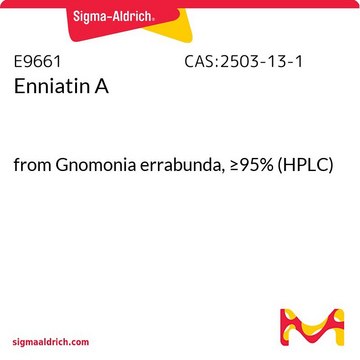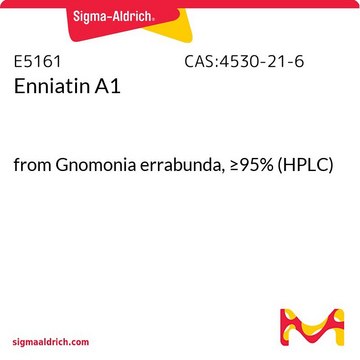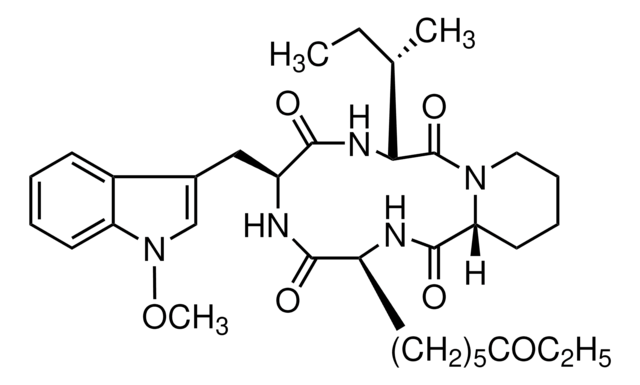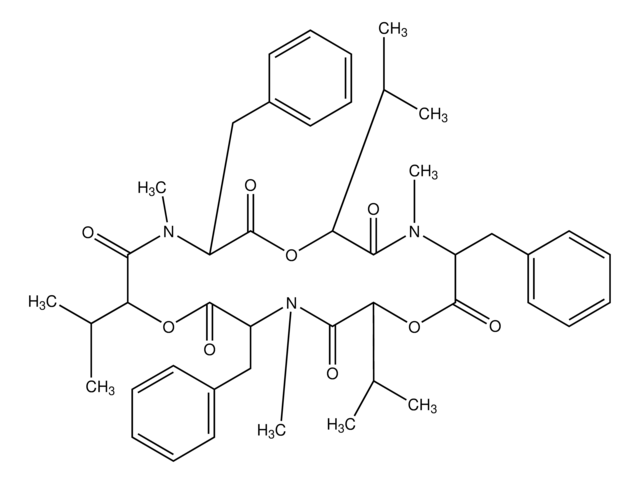E5286
Enniatin B1
from Gnomonia errabunda, ≥95% (HPLC)
Sinónimos:
2-(N-Methyl-L-isoleucine) Enniatin B, 3-Butan-2-yl-4,10,16-trimethyl-6,9,12,15,18-penta(propan-2-yl)-1,7,13-trioxa-4,10,16-triazacyclooctadecane-2,5,8,11,14,17-hexone
About This Item
Productos recomendados
biological source
Gnomonia errabunda
Quality Level
assay
≥95% (HPLC)
solubility
DMSO: 10 mg/mL
ethanol: 10 mg/mL
methanol: 10 mg/mL
storage temp.
−20°C
SMILES string
N1(C(C(=O)OC(C(=O)N(C(C(=O)OC(C(=O)N(C(C(=O)OC(C1=O)C(C)C)C(C)C)C)C(C)C)C(C)C)C)C(C)C)C(CC)C)C
InChI
1S/C34H59N3O9/c1-16-22(12)25-34(43)46-27(20(8)9)30(39)36(14)23(17(2)3)32(41)44-26(19(6)7)29(38)35(13)24(18(4)5)33(42)45-28(21(10)11)31(40)37(25)15/h17-28H,16H2,1-15H3
InChI key
UQCSETXJXJTMKO-UHFFFAOYSA-N
Application
Biochem/physiol Actions
signalword
Danger
hcodes
Hazard Classifications
Acute Tox. 3 Dermal - Acute Tox. 3 Inhalation - Acute Tox. 3 Oral
Storage Class
6.1C - Combustible acute toxic Cat.3 / toxic compounds or compounds which causing chronic effects
wgk_germany
WGK 3
flash_point_f
Not applicable
flash_point_c
Not applicable
Elija entre una de las versiones más recientes:
¿Ya tiene este producto?
Encuentre la documentación para los productos que ha comprado recientemente en la Biblioteca de documentos.
Nuestro equipo de científicos tiene experiencia en todas las áreas de investigación: Ciencias de la vida, Ciencia de los materiales, Síntesis química, Cromatografía, Analítica y muchas otras.
Póngase en contacto con el Servicio técnico









